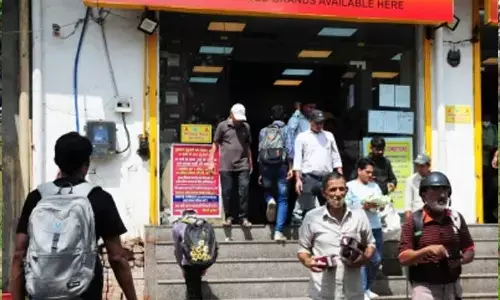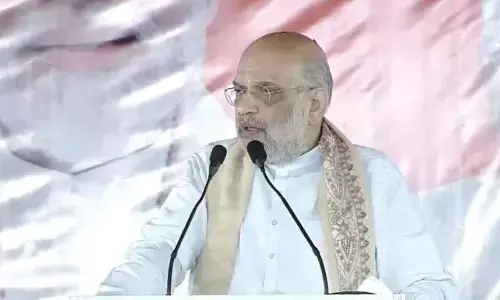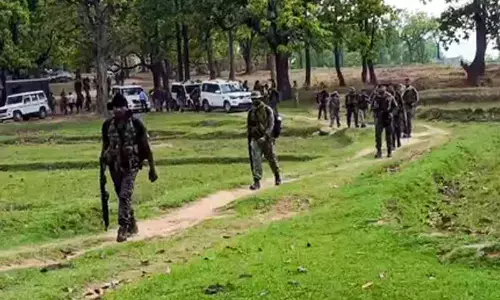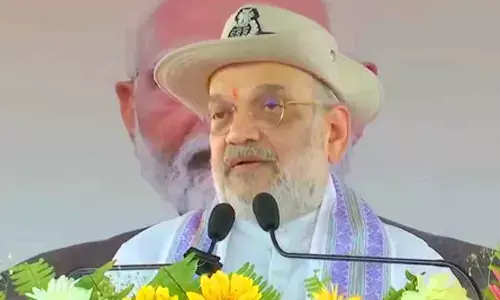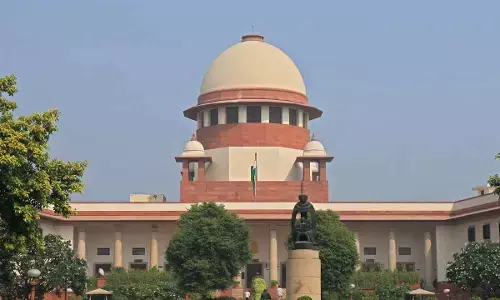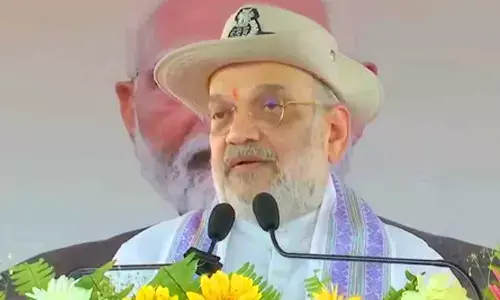Know about our National Anthem
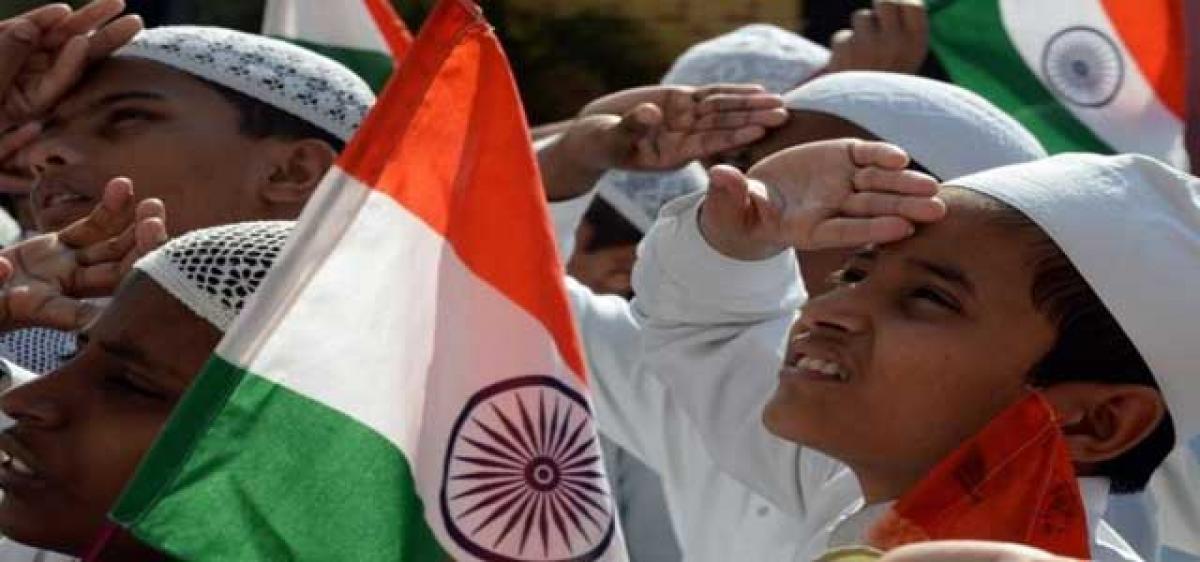
This is the story of request for information about national anthem. Surprisingly, the Prime Minister’s Office ignores this aspect and Ministry of Environment and Forests (MoEF) say they have nothing to do with national anthem. How Vishwa Kavi, Noble Laureate Rabindra Nath Tagore’s patriotic song ‘Jana Gana Mana’ became a national anthem was the simple demand under RTI Act.
Rabindranath Tagore, in 1919, spent some days at the Theosophical College, Madanapalle (now in Andhra Pradesh), and sang ‘Jana Gana Mana’ at the function there. The college authorities, greatly impressed by the lofty ideals of the song, selected it as their prayer song.
In the days that followed, enchanted by the dreamy hills of Madanapalle, Tagore wrote down the English translation of the song and along with cousins' wife, Margaret (an expert in Western music), set down the notation which is followed till this day. The song was carried beyond the borders of India by the college students and became the Morning Song of India and subsequently the first stanza in Bengali was adopted as the National Anthem of India
This is the story of request for information about national anthem. Surprisingly, the Prime Minister’s Office ignores this aspect and Ministry of Environment and Forests (MoEF) say they have nothing to do with national anthem. How Vishwa Kavi, Noble Laureate Rabindra Nath Tagore’s patriotic song ‘Jana Gana Mana’ became a national anthem was the simple demand under RTI Act. It was kicked into various public authorities, yielding nothing.
The Supreme Court in Shyam Narayan Chouksey v Union of India, (on November 30, 2016) found it ‘imperative’ to honour and respect the national anthem and national song. It described it as part of their sacred obligation. The Bench said: “a time has come, the citizens of the country must realise that they live in a nation and are duty bound to show respect to National Anthem, which is the symbol of the constitutional patriotism and inherent national quality.”
Hundred years of National Anthem
On December 27, 2011, our National Anthem completed 100 years. Written by Rabindra Nath Tagore in Bengali, it was first sung on December 27, 1911, in the Calcutta [Now Kolkata] session of Indian National Congress. The building, where the plenary session of Congress was held, is called Bharat Sabha. It is in Bowbazar Street. That building still stands and is the silent reminder of that historical event. Rabindranath Tagore wrote five stanzas of the song, which is basically a Brahmo Hymn. Only the first stanza was adopted by the Constituent Assembly as the National Anthem on January 24, 1950.
(Source: https:// mevidur.wordpress. com/tag/theosophical-college-madanapalle)
All the 5 stanzas with the English translation by Rabindranath Tagore are given below:
1. Jano Gano Mano Adhinaayako Jayo Hey, Bhaarato Bhaagyo Bidhaataa Panjaabo Sindhu Gujaraato Maraathaa, Draabiro Utkalo Bango Bindhyo Himaachalo Jamunaa Gangaa, Uchchhalo Jalodhi Tarango Tabo Shubho Naamey Jaagey, Tabo Shubho Aashisho Maagey Gaahey Tabo Jayo gaathaa Jano Gano Mangalo Daayako, Jayo Hey Bhaarato Bhaagyo Bidhaataa Jayo Hey, Jayo Hey, Jayo Hey, Jayo Jayo Jayo, Jayo Hey [Thou art the ruler of the minds of all people, Dispenser of India‘s destiny.
Thy name rouses the hearts of Punjab, Sindh, Gujarat & Maratha, of the Dravida and Orissa and Bengal. It echoes in the hills of the Vindhyas and Himalayas, mingles in the music of Jamuna and Ganges, And is chanted by the waves of the Indian Sea. They pray for thy blessings and sing thy praise.
The saving of all people waits in thy hands, Thou dispenser of India’s destiny, Victory, Victory, Victory to thee. 2.Ohoroho Tobo Aahbaano Prachaarito,Shuni Tabo Udaaro Baani Hindu Bauddho Shikho Jaino, Parashiko Musholmaano Christaani Purabo Pashchimo Aashey, Tabo Singhaasano Paashey Premohaaro Hawye Gaanthaa Jano Gano Oikyo Bidhaayako Jayo Hey, Bhaarato Bhaagyo Bidhaataa Jayo Hey, Jayo Hey, Jayo Hey, Jayo Jayo Jayo, Jayo Hey [Day and night, thy voice goes out from land to land, calling the Hindus, Buddhists, Sikhs and Jains round thy throne and the Parsees, Mussalmans and Christians.
Offerings are brought to thy shrine by the East and the West, to be woven in a garland of love. Thou bringeth the hearts of all people into the harmony of one life. Thou Dispenser of India’s destiny, Victory, Victory, Victory to thee.” ]
3. Potono Abhbhudoy Bandhuro Ponthaa, Jugo Jugo Dhaabito Jaatri Hey Chiro Saarothi, Tabo Ratha Chakrey Mukhorito Potho Dino Raatri Daaruno Biplabo Maajhey, Tabo Shankhodhwoni Bajey Sankato Dukkho Traataa Jano Gano Potho Parichaayako,Jayo Hey Bhaarato Bhaagyo Bidhaataa Jayo Hey, Jayo Hey, Jayo Hey,Jayo Jayo Jayo, Jayo Hey [The procession of pilgrims passes over the endless road, rugged with the rise and fall of nations; and it resounds with the thunder of thy wheel. Eternal Charioteer!
Through the dire days of doom thy trumpet sounds, and men are led by thee across death. Thy finger points the path to all people. Oh dispenser of India’s destiny, Victory, victory, victory to thee.
4.Ghoro Timiro Ghono Nibiro,Nishithey Peerito Murchhito Deshey Jagrato Chhilo Tabo Abicholo Mangalo,Noto Nayoney Animeshey Duhswapney Aatankey,Rokkhaa Koriley Ankey Snehamoyi Tumi Maataaa Jano Gano Duhkho Trayako,Jayo Hey Bhaarato Bhaagyo Bidhaataa Jayo Hey, Jayo Hey, Jayo Hey, Jayo Jayo Jayo, Jayo Hey [The darkness was dense and deep was the night; my country lay in a deathlike silence of swoon.
But thy mother arms were round her and thine eyes gazed upon her troubled face in sleepless love through her hours of ghastly dreams.
Thou art the companion and the saviour of the people in their sorrows, thou dispenser of India’s destiny, Victory, victory, victory to thee.] 5.Raatri Prabhatilo Udilo Rabichhabi, Purbo Udayo Giri Bhaaley Gaahey Bihangamo Punyo Samirano, Nabo Jibano Rasho Dhaley Tabo Karunaaruno Ragey,Nidrito Bhaarato Jagey Tabo Chorone Noto Maatha Jayo Jayo Jayo Hey, Jayo Rajeshwaro, Bhaarato Bhaagyo Bidhaataa Jayo Hey, Jayo Hey, Jayo Hey,Jayo Jayo Jayo, Jayo Hey [The night fades; the light breaks over the peaks of the Eastern hills, the birds begin to sing and the morning breeze carries the breath of new life.
The rays of the mercy have touched the waking land with their blessings. Victory to the King of Kings, victory to thee, dispenser of India’s destiny, Victory, victory, victory to thee] English translation of ‘Jana Gana Mana,’ Morning Song of India, in Rabindranath’s own handwriting is also available in http://satyashodh.com/ janaganaman/index.htm (Date Feb 28, 1919) Print media traced the history: on December 27, 1911, ‘Jana Gana Mana’ was rendered as a song at the annual session of the Indian National Congress in Kolkata. It was published in the Bengali journal Tatwabodini in January 1912, titled Bharat Bidhata and was classified as Brahma Sangeet.
The relevant portion of the official report of the 26th Session of the Congress reads: The proceedings commenced with a patriotic song composed by Babu Rabindranath Tagore. On Jan 25, 1912, ‘Jana Gana Mana’ was sung the second time in a programme at the Maharshi Bhavan in Kolkata under the guidance of Rabindranath himself.
Yet another session of the Congress was held in Kolkata in 1917. On the third day, December 28, ‘Jana Gana Mana’ was again sung. The official report of the Congress thus quoted Deshbandhu Chittaranjan Das as saying: "Brother delegates, at the very outset I desire to refer to the song which you have just listened to, it is a song of the glory and victory of India." (Source: http://timesofindia.indiatimes.com/ city/bengaluru/Was-Jana-Gana-Mana-in-praise-of-George-V/articleshow/32609087.cms)
Web sources and Wikipedia brought out some more details about our anthem: Poet Rabindranath Tagore, in 1919, spent some days at the Theosophical College, Madanapalle (now in Andhra Pradesh), and sang ‘Jana Gana Mana’ at the function there. The college authorities, greatly impressed by the lofty ideals of the song, selected it as their prayer song. In the days that followed, enchanted by the dreamy hills of Madanapalle, Tagore wrote down the English translation of the song and along with cousins' wife, Margaret (an expert in Western music), set down the notation which is followed till this day.
The song was carried beyond the borders of India by the college students and became the Morning Song of India and subsequently the first stanza in Bengali was adopted as the National Anthem of India. Source: https://en.wikisource.org/wiki/The_Morning_Song_of_India.
Article 51(A) (a) of the Constitution states: …it shall be the duty of every citizen of India to abide by the Constitution and respect its ideals and institutions, the National Flag and the National Anthem…...
The Prevention of Insults to National Honour Act, 1971, also deals with the citizen’s duty to respect for the national anthem. Earlier in Bijoe Emmanuel v. State of Kerala, AIR 1987 SC 748, the Supreme Court wanted people to respect the national anthem when it was singing, except when a particular religion does not allow them to join in singing.
In that case the apex court upheld freedom of a school going child not to join the singing of national anthem in school but did not resort to ‘deliberate insult.’ There must be a strong reason for not joining the singing. These two orders of apex court coupled with Article 51A of the Constitution and Act of 1971 cast a duty upon the citizens to respect the national anthem/song and on the governments to inspire the people to respect the national symbols. To instill respect for the national anthem, the Union Government should do all that they could to educate people about the historical importance, significant reasons for declaring it as national anthem.
The non-response by PMO and MoEF to request for information about national anthem and song is not proper and legal. It is the breach of the Right to information of the people about their national anthem Jana gana mana and national song Vandemataram. Before punishing the people for not standing/respecting the national anthem, they should be informed about its greatness. (based on Commission’s order in CIC/SA/A/2016/001453 Harinder Dhingra v. PIO, MoEF on 23.12.2016)


